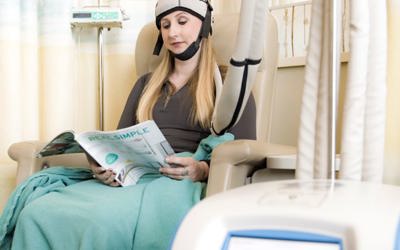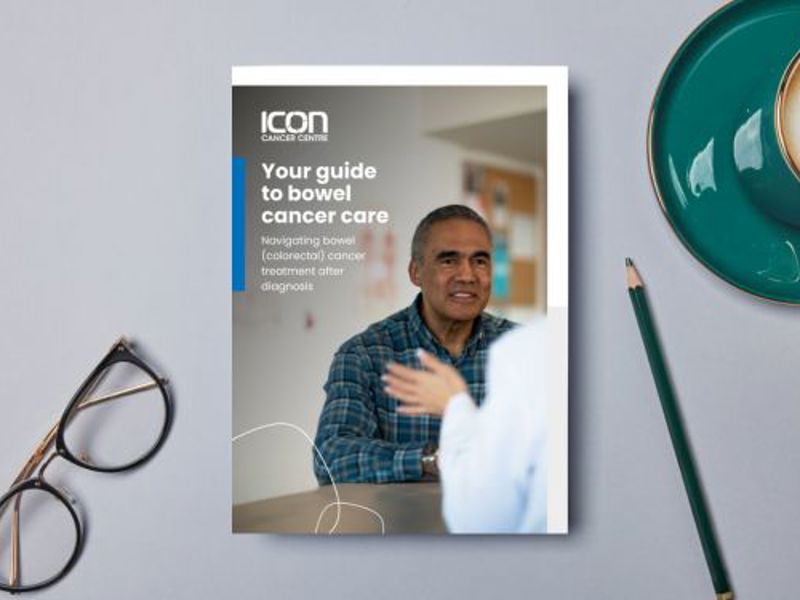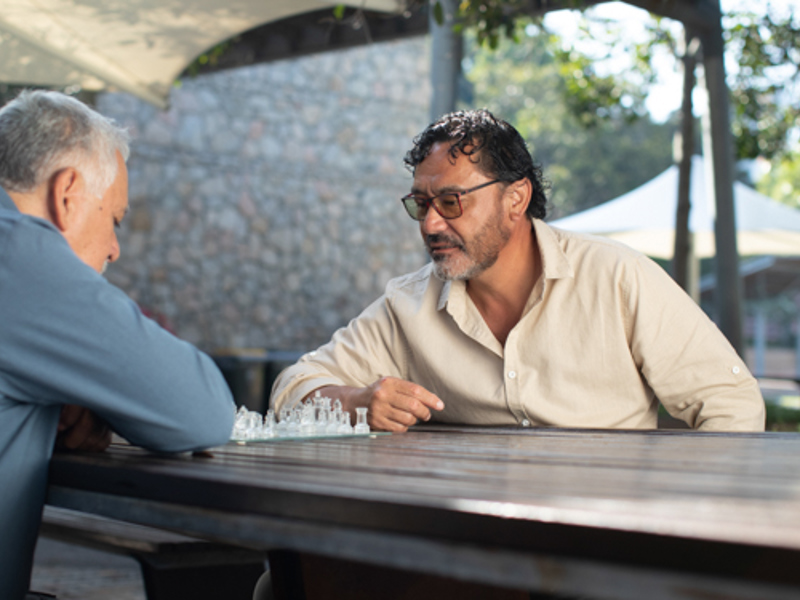
Everything you need to know about scalp cooling
Bowel cancers start as benign, non-threatening growths called polyps found on the wall or inner lining of the bowel. Polyps are often harmless, however adenomatous polyps can become cancerous and can develop over time into a cancerous tumour.
Bowel cancer is a significant health concern in Australia and is the fourth most diagnosed cancer in the country1. It’s estimated that approximately one in 15 Australians2 will be diagnosed with bowel cancer in their lifetime.
The risk of bowel cancer increases from the age of 50 and if found early, 90%3 of bowel cancers can be successfully treated, which is why screening is so important.
Be informed, feel empowered. Our free guide will help you make decisions about your, or your loved ones, care.

Blood in your poo or in the toilet bowl
Changes in normal bowel habits such as
Looser poos
Severe constipation
Needing to poo more often than usual
Pain on or lump/swelling in stomach
Fatigue
Unexpected weight loss

The Australian Government introduced the National Bowel Cancer Screening Program to reduce the number of deaths from bowel cancer by detecting early signs of the disease.
The program uses a faecal occult blood test (FOBT) kit which looks for traces of blood in the stool as it may not be visible to the naked eye. While it’s not a direct test for cancer, it can detect early signs of bowel abnormalities.
Australians aged 50 to 74 are automatically invited to take part in the screening program and will receive a free test kit delivered to their address every two years.
From July 1, 2024 Australians aged 45 to 49 can join the National Bowel Cancer Screening Program by requesting a kit. People in this age group can order their first free kit by completing the form available online at: www.ncsr.gov.au/boweltest.
This life saving process is quick, simple and easy to complete at home.
You need to collect two small samples from two separate bowel movements. This means you’ll need to go to the toilet twice and take a sample each time. If possible, collect the two samples as close together as you can.
The kit that comes in the mail has everything you need to do the test in your home, including:
detailed instructions
participant details form
flushable toilet liners
collection tubes
zip lock bag
reply-paid envelope
Please be aware that it should be completed and sent for testing as soon as possible because exposure of your collected sample to high heat can affect the accuracy of the result. In hotter areas of Australia, the kit may be sent out in the cooler months.
A pathology laboratory will analyse your sample and check for blood in your sample and you will receive your results within 4 weeks.
You should not do the test if you have:
your menstrual period. Do the test 3 days after your menstrual period has finished
haemorrhoids (piles) that are bleeding
recently had a colonoscopy
blood in your urine, poo, or in the toilet bowl – if this happens, speak to a doctor
You should speak to a doctor if you have:
any symptoms of bowel cancer
a strong family history of bowel cancer

Bowel Screening Test Kit Helpline: 1800 930 998
National Cancer Screening Register: 1800 627 701
National Cancer Screening Website: www.health.gov.au/nbcsp
The content on the Icon Cancer Centre website is for informational purposes only and should not be considered medical advice. It is not a substitute for consultation with a qualified medical practitioner. For personalised medical guidance, please consult with your GP or another qualified healthcare provider.
Discover our comprehensive collection of content designed to inform, support, and guide you through every aspect of cancer care. From the latest news and updates to personal patient experiences and educational resources, these materials provide valuable insights to help you better understand cancer, treatment options, and the journey ahead.